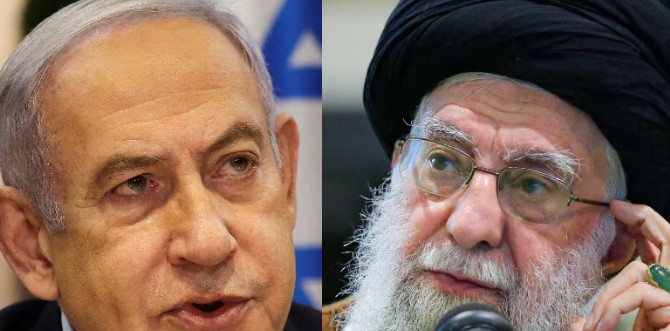In a dramatic escalation of regional tensions, the Israeli military has confirmed launching multiple waves of airstrikes targeting Iranian military and nuclear infrastructure, signaling what could become one of the most volatile confrontations in the Middle East in years.
According to a senior Israeli military official speaking, five waves of strikes have been conducted so far, hitting at least eight critical locations across Iran. The strikes were described as “precision attacks” targeting sites believed to be linked to Iran’s military leadership and nuclear program.
Operation Will Continue as Long as Necessary” – Netanyahu
Speaking in a televised address, Israeli Prime Minister Benjamin Netanyahu stated that the operation is ongoing and will continue “as long as necessary.” He also declared a state of emergency, warning Israeli citizens to remain in designated shelter zones and adhere strictly to military instructions.
“Our operations have been very successful so far,” said Netanyahu. “We are acting decisively to neutralize existential threats to the State of Israel.”
Israeli citizens have been warned to prepare for a prolonged period in bomb shelters as the nation braces for potential Iranian retaliation, which could take the form of missile attacks or proxy operations via groups like Hezbollah in Lebanon or the Houthis in Yemen.
The Iranian Foreign Ministry has sharply condemned the strikes, calling them an “unprovoked act of aggression” and a threat to global security.
In a statement, Iran accused Israel of endangering international peace and dragging the region toward a broader war, stating:
“This reckless attack exposes global security to an unprecedented threat. The Islamic Republic holds the United States Israel’s principal enabler fully responsible for the consequences.”
The United States government, while reiterating its support for Israel’s right to self-defense, denied any involvement in the operation, distancing itself from the decision to carry out the strikes. U.S. officials are reportedly urging both sides to de-escalate immediately and have placed American forces in the region on high alert.
Sources close to Israeli defense say the strikes focused on:
-
Suspected nuclear research facilities
-
Military air bases and radar stations
-
Ballistic missile depots
-
Command and control centers linked to the Islamic Revolutionary Guard Corps (IRGC)
Iranian media has acknowledged some of the strikes but claims damage was “limited” and that Iranian defense systems had intercepted “several” incoming missiles. These claims could not be independently verified.
The United Nations Security Council has been called into emergency session. Countries across Europe, Asia, and the Middle East are issuing urgent travel advisories and calling for calm amid fears of a regional war.
NATO and the EU have expressed concern over the possibility of Iran retaliating with missile strikes against Israeli cities or American assets in the region. Oil markets have already responded sharply, with Brent crude prices spiking over $100 per barrel due to fears of supply disruptions.
While both Israel and Iran have engaged in covert operations and cyber attacks over the years, this is the first open, large-scale military confrontation between the two powers. Analysts warn that further escalation could draw in other nations, spark widespread instability across the Middle East, and disrupt global energy supply chains.
The situation remains fluid, with regional and global powers closely monitoring the fallout. Experts suggest that Iran’s next steps whether military, diplomatic, or both will determine whether the world stands on the edge of a major conflict or a forced return to diplomacy.
With Israel on high alert, Iran vowing a strong response, and global powers deeply concerned, the Middle East once again finds itself at a precarious crossroads. The coming hours and days will be critical in shaping the trajectory of this unfolding crisis.



